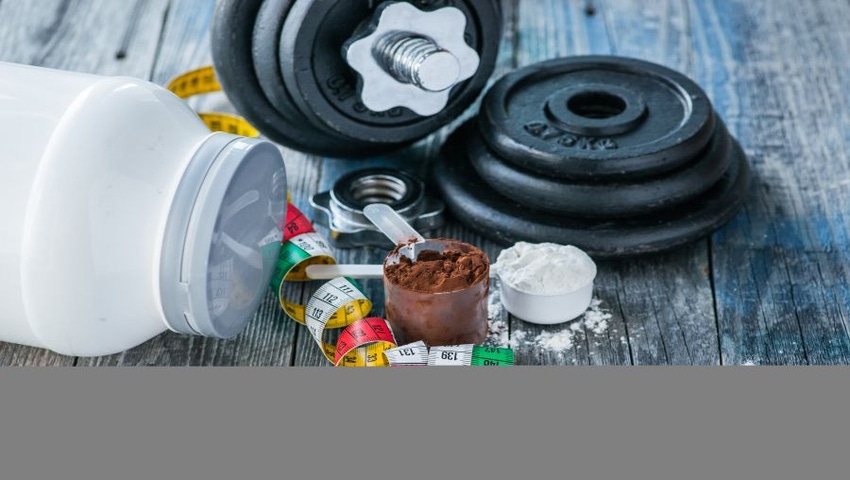Sports nutrition brand holders must decide whether to invest in certifications—which vary widely in complexity—or to simply comply with regulatory requirements.

The marketplace for dietary supplements is becoming an expanding realm of certifications, including everything from GMP (good manufacturing practice), organic, vegan, GMO (genetically modified organism)-free, sustainably sourced and more. Among these certifications, only one poses immediate problems to the consumer, and it has its focus in the sports nutrition sector. Consumption of some dietary supplements—regardless of whether they are in regulatory conformance—can result in the most negative consequences for athletes because should the athlete test positive for any one of hundreds of banned substances, they face sure and certain action. The specialized world of sports nutrition is one where “cutting edge" nutrients are included in a range of products intended to support or even enhance physical performance. How then does the athlete/consumer know what to take?
Enter “the certifiers." Initiatives are in place that involve the certification of products and, in the best efforts, ensure individual lots of product are free from banned substances. As of today, the number of such certifiers is small, and there are variances in how they perform their certifications. Some insist on individual batch testing and release in order for the certification to be in effect. Others certify only the products themselves based on formula evaluation, testing and auditing of the manufacture of the products.
The need for such organizations and the service they provide is an unfortunate indication of the actions (and inactions) of some of the players in the sports nutrition segment. The concept behind GMPs and the application of these regulations—approaching 10 years since finalization—is in part to ensure the products delivered meet the labeled requirements and do not contain unacceptable levels of contaminants, including, in some instances, banned substances. Performing in accordance with the regulations requires determinations that the ingredients included in these products are what they say they are. It is fundamentally an issue of a shortfall in GMP violation enforcement that at least in part accounts for the need for such certifications.
Certifying organizations work with the manufacturers and distributors of the products and, in some instances, with different sports organizations in attempt to gain endorsement of their programs. The delivery of legitimate certification is obviously critical to the certifiers, but how they go about making their determinations is an important factor in deciding whether to approach one of these companies to have products certified—or, from the consumer perspective, whether the “seal of approval" is meaningful.
The essential elements in choosing a certifier lie in understanding the processes employed, the quality of the analyses performed and/or to at least know with a high degree of detail the requirements necessary to obtain the certification. Nearly all the certifying activities are effectively a repeat of GMP requirements, and thus not truly a value-add. The partnering aspect the certifiers have with different sports organizations becomes critical only after the determination of value added on a more empirical level. Since certifiers are a reality due in part to a lack of compliance to GMPs, the recommendation is to thoroughly and carefully evaluate the activities of these organizations before deciding to approach them. The costs involved are not insignificant, and the potential for delays of delivery of product to the market while individual batches are tested must also be accounted for.
Any company involved in the sports nutrition segment could resolve these issues on its own with compliant application of GMPs. Even companies that are exclusively own-label distributors have the regulatory obligation to “know the performance of" any of their contracted manufacturers as part of dietary supplement GMP compliance. Fulfilling these obligations involves much of the same work as an additional paid certification and only lacks a “seal of approval." Certifications make consumer choices simpler by allowing them to rely on the certification as their guarantee. The marketplace increasingly demands certification because products that just don’t comply are too often sold. This is an added expense to industry owed in part to its own actions.
For their part, the certifiers are simply filling a market need. However, it is also important to recognize the requirements of the certifiers may also include added obligations. These “added benefits" are often not necessarily regulatory requirements nor are they an extension of such requirements. Payment for something beyond regulatory obligations only justifies the work of the certifier in its efforts to apply a “higher standard." In recognizing there is only one regulatory body and one set of regulations, everything else is just colored bubbles. Making a selection as to which certifier to choose involves knowing the laboratory capabilities (ISO certification and determination of what is being tested), the “additional requirements" that may be embedded in their services, and whether they are aligned with a sports organization of interest or need. These factors have to be balanced against the expense incurred in obtaining such a certification.
Evaluating the marketplace and consumer demand is also important. Choose carefully from among the certifiers. The prominent ones are excellent organizations. They focus on the matters of determining and reporting the presence of inappropriate substances in the dietary supplements reviewed. The obligation of any organization seeking certification is to investigate the offering, how the determination is made, whether the laboratory analyses are fully compliant and what the “added benefits" are—since this all must be paid for whether necessary or not. Armed with this knowledge, an appropriate selection of a certifier can be made. Or a company could simply comply with the regulations, have complete transparency to pass any inspection, and thus save money and effort. Sports nutrition products should only successfully exist in a compliant fashion and follow the rules, i.e., the regulations.
As chief operating officer, Jim Lassiter oversees all consulting operations at Ingredient Identity. He has more than four decades of experience in quality control (QC), and government and regulatory affairs throughout the pharmaceutical, dietary supplement and natural product industries with organizations such as Nutrilite, Robinson Pharma, Irwin Naturals, Chromadex, the American Herbal Products Association (AHPA) and the Council for Responsible Nutrition (CRN). A respected author and speaker, Lassiter has served on numerous industry and trade boards.
About the Author(s)
You May Also Like






.png?width=800&auto=webp&quality=80&disable=upscale)